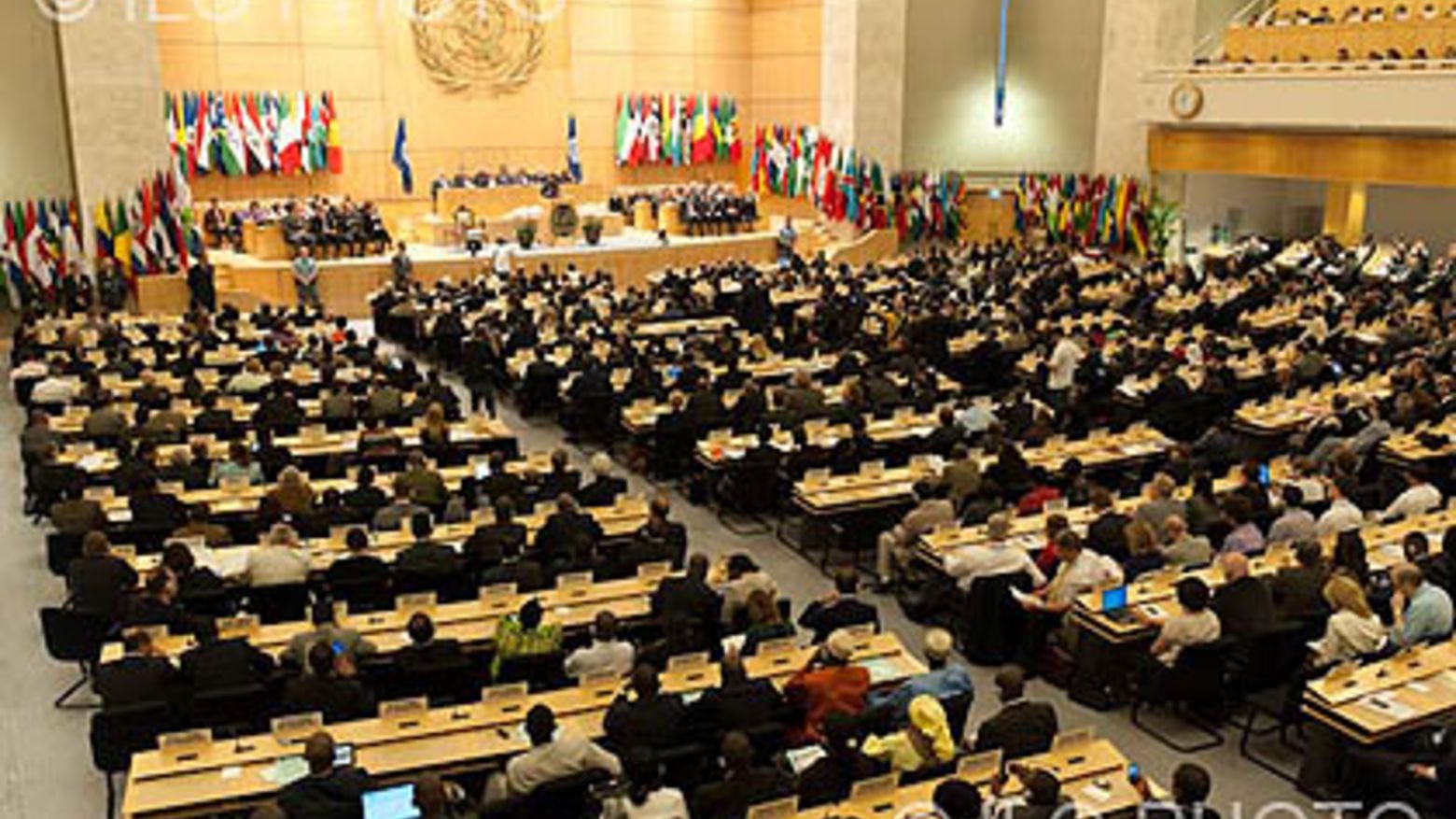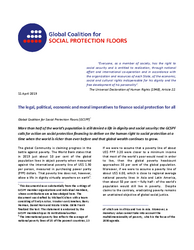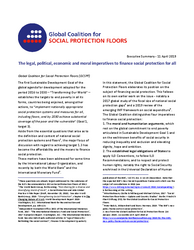The first Sustainable Development Goal of the global agenda for development adopted for the period 2016 to 2030 – “Transforming Our World” – establishes the targets to end poverty in all its forms, countries being enjoined, among other actions, to “implement nationally appropriate social protection systems and measures for all, including floors, and by 2030 achieve substantial coverage of the poor and the vulnerable” (Goal 1, target 3).
Aside from the essential questions that arise as to the definition and content of national social protection systems and floors, the major focus of discussion with regard to achieving target 1.3 has become the affordability and the means to finance social protection.
These matters have been addressed for some time by the International Labour Organization, and recently by both the World Bank and the International Monetary Fund.
In this statement, the Global Coalition for Social Protection Floors, a network of over 100 civil society organizations and trade unions, elaborates its position on the subject of financing social protection. This follows on its own earlier work on the issue - notably a 2017 global study of the fiscal size of national social protection gaps and a 2019 review of the emerging IMF framework on social expenditure.
The Global Coalition distinguishes four imperatives to finance social protection:
1. The moral and humanitarian arguments, which rest on the global commitment to end poverty articulated in Sustainable Development Goal 1 and on the well-known benefits of social security in reducing inequality and exclusion and elevating dignity, hope and ambition.
2. The established legal obligations of States to apply ILO Conventions, to follow ILO Recommendations, and to respect and protect human rights, notably the right to Social Security enshrined in the Universal Declaration of Human Rights of 1948 and the International Covenant on Economic, Social and Cultural Rights of 1966, as well as to ensure through every means possible the realization of the Sustainable Development Goals that were adopted unanimously by the Member States of the United Nations in 2015 to transform our world. Furthermore, the ILO Recommendation 202 provides specific and concrete guidance on the components of social protection that are needed as agreed unanimously by the ILO Member States.
3. The economic rationale rests on the evident requirement to dedicate social policy for social protection to ensure that economic benefits are deliberate; failure to target social policy and invest purposefully in the social sphere raises the cost of social protection due to inefficiencies.
4. From all the foregoing arguments, it follows that political will must be mobilized to ensure the investment in social protection. At the same time, political will is independent of economic development and countries can take action at all levels of income. There is no trade-off between growth and redistribution; redistribution has historically led to growth. Planned and considered social protection requires systematic governmental policies and action.
Social Protection is affordable
The 2017 Global Coalition study of the fiscal size of national social protection gaps showed that only 21 of 116 countries would require increases in spending above 4 per cent of GDP to close their gap. A small number among them would require at least short-term international financial support amounting to about 0.09 per cent of estimated global annual military expenditures, which is affordable. A global solidarity mechanism has been proposed and is discussed in the paper.
Coherent systems of large and stable risk pools can be created on the basis of existing informal social protection schemes and other existing resources as well as additional new resources from a range of schemes and their various combinations, resulting in greater reliability, fairness and equality.
Universal benefits are the most efficient means to protect the very poorest, because targeting and means tests are very costly and highly error-prone. Universal benefits should be funded through progressive and effective taxation on income, and not on taxation of consumption, which is regressive and defeats the purpose of protecting the poor.
Effective and progressive taxation is essential
To sustain effective social protection systems, governments must strive for effective revenue collection and efficient disbursement, which in turn requires a regimen of progressive, corruption-free taxation, based on financial transparency, deterrence of tax evasion, and a functional administration with good governance. International initiatives to reform taxation and technical assistance to reduce uncaptured taxes and to reform tax systems that incentivize largely exported gains at the expense of national expenditure priorities have a role in building sustainable systems. Basic spending on social protection must be preserved in times of national hardship and economic stress and loan repayment arrangements should reflect its precedence in all circumstances.
National and international action is required
Getting to universal social protection requires swift action by national governments and global institutions. To this end, the Global Coalition for Social Protection Floors requests a number of specific actions on the part of national governments and parliaments; international financial institutions; and the United Nations system and several specialized agencies. The critical role of civil society and trade unions in democratization and strengthening the social contract is stressed. They have a transformative role in the realization of the right to social security. To this end, the Global Coalition for Social Protection Floors pledges a number of actions on behalf of civil society and trade unions.







